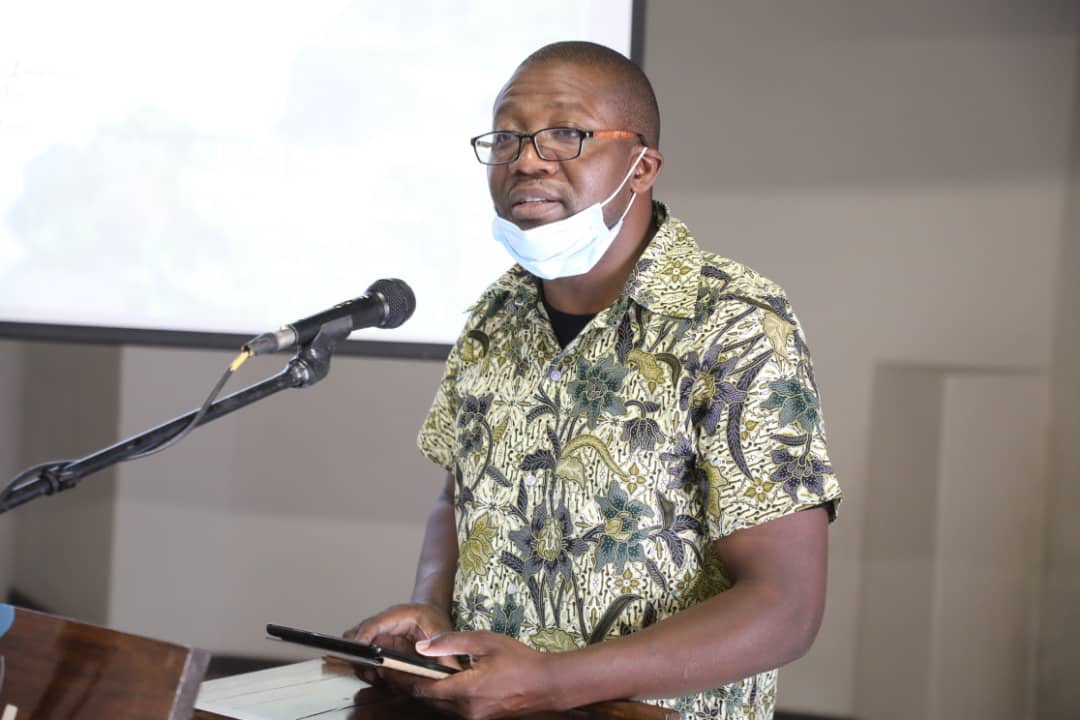Climate change impacts on the tourism sector and vice-versa hence the need for sustainable management of the natural phenomenon as well so as to create opportunities for the sector, Minister Mangaliso Ndlovu has said.
The Minister of Environment, Tourism, and Hospitality Industry Minister Mangaliso Ndlovu speaking at the Tourism and Hospitality Sector Indaba in Victoria Falls said whilst the climate has been changing for centuries or millions of years, recent changes in climate have been attributed mainly to human activities.
Minister Ndlovu said these include massive burning of fossil fuels such as coal, oil, and gas since the industrial revolution, especially by developed countries.
Developing countries are now also equally contributing to destroying the climate system mainly through poor land-use planning and unsustainable utilisation of natural resources which are linked to the climate system e.g. charcoal production.
“Furthermore, there is widespread energy and water use inefficiency leading to higher demands for energy which is coming largely from fossil sources which emit greenhouse gas in the process of energy generation. Sadly, developing countries bear the brunt of climate change due to our limited adaptive capacities, susceptibility to the climate change impacts and general poverty.
“Being a developing country located in a semi-arid subtropical region, Zimbabwe is highly vulnerable to climate variability and change. Our geographic position in the path of some of the destructive climate extremes such as Tropical Cyclones, tornado-like winds, and recurrence of climate-induced phenomena such as prolonged droughts and heat waves puts our climate-sensitive sectors such as tourism, health, and agriculture at risk,” Minister Ndlovu said.
This meeting comes at a time when the country is still responding to the devastating impacts of one of the most sophisticated and complex Tropical Cyclone in the region’s history, Tropical Cyclone Idai.
Some will also have no good memories of Cyclone Eline whose scars are still visible in some areas, some of which damaged tourism arteries like roads and bridges. The 2018/2019 and 2019/2020 agricultural seasons were also characterised by delayed onset of the season, low rainfall and prolonged dry spells resulting in low crop yields and impacts on livestock and wildlife.
Resultantly, the country lost over 200 elephants to drought and had a number of its climate-sensitive tourism sites losing their sparkle as water levels fell in most of our major dams, rivers and waterfalls. Zimbabwe’s prime tourist destination, the Victoria Falls, was not spared as the records show that it had one of the record low flows.
The negative impacts of climate change on hydro-power generation over the past years and subsequently on tourism cannot be over-emphasised.
A few years back, reports of planes having to delay their landing take off due to extreme weather events especially high temperatures at Victoria Falls and Kariba Airports are on record. Indeed the tourism sector will also recall a period when for the Kariba route customers had to travel with very luggage airborne, particularly on the Kariba Route. All this shows the urgent need for multi-stakeholder and multi-disciplinary approach to climate change within government, together with private sector and partners including our neighbouring countries we share some of the tourism attractions with, the minister added.
To ameliorate the impacts of climate change, the minister said there is a need to raise awareness on climate change, accept that climate change is a reality and strengthen the capacity to respond to both current and future climates.
The minister said the question becomes what is to be done:
- What adaptation measures can we take?
- Given the prevailing weather trends of delayed onsets, long dry spells, recurrent droughts or flooding, rising temperatures and other extremes such as violent storms, how do we decouple the tourism sector from climate-dependence?
- Is it time for enhanced renewable investments including use of solar geysers?
- How can we best preserve and protect our wetlands
- How best can we promote environmentally sustainable constructions; that minimise disruptions in the ecosystems?
- In short, is it possible to mainstream green tourism as Victoria Falls and indeed as a country? I believe it’s not only possible but pretty much the only viable option going forward as we build a strong and resilient tourism industry with its key enablers.
Minister Ndlovu saidZimbabwe’s tourism sector dependence on water-bodies, flora, and fauna which are all rain-fed require review and strategizing. While the current losses of life, flora, and fauna associated with climate change may be unavoidable there, he said there is an urgent need for transformative approaches in the tourism sector towards sustainability.
Zimbabwe’s prime tourism destination and special economic zone, the mighty Victoria Falls, has not been spared from the impacts of climate change which is reducing the time the falls will be a marvel or at its peak.
Various studies from renowned researchers, institutions and the Intergovernmental Panel on Climate Change (IPCC) have all painted a potentially gloomy picture when it comes to projected changes in temperature (which is expected to increase), rainfall (which is projected to be more erratic, have delayed onsets and decrease in amounts) in most parts of the country such as the Zambezi river basin and the southern parts of Zimbabwe.
The minister called for dialogue amongst the researchers, scientists, tour operators, strategists, regulators, and all tourism players so as to understand the past, current and future climate scenarios.
Minister Ndlovu expects effective early warning and crafting of sustainable tourism strategies and interventions which are guided by the best available science.
He added that tourism is a major foreign currency earner and hence requires the necessary support.






